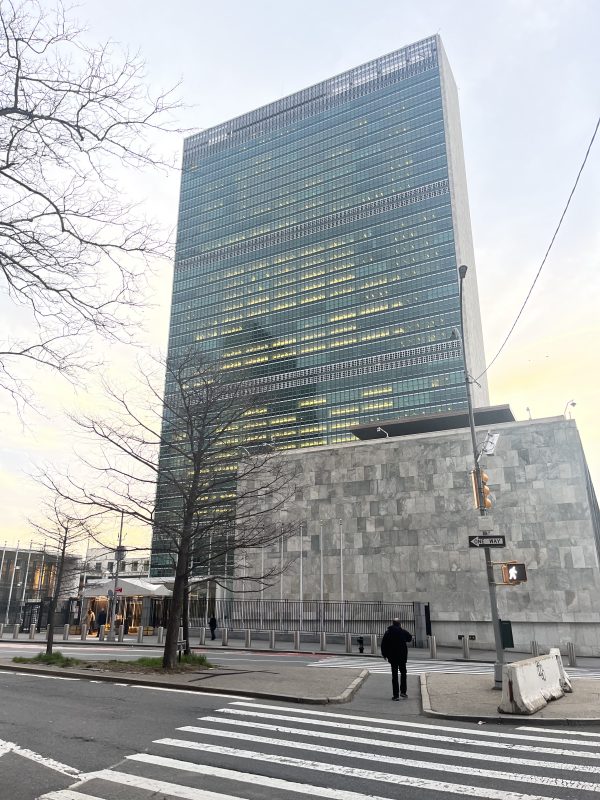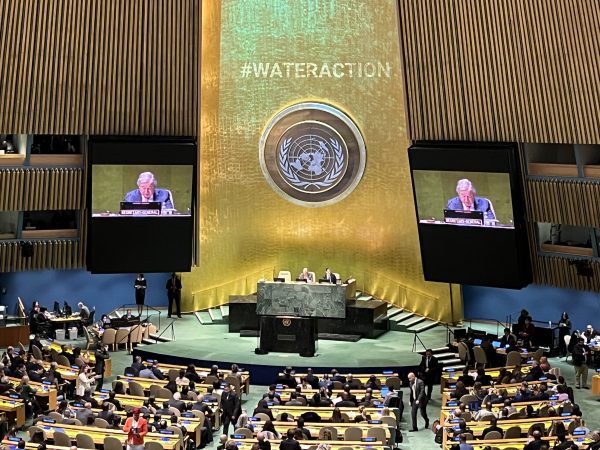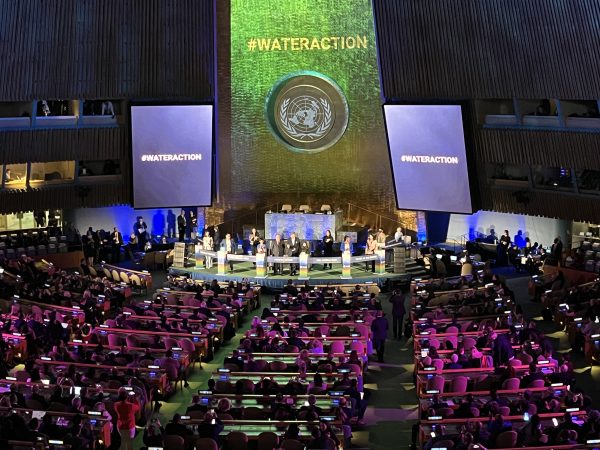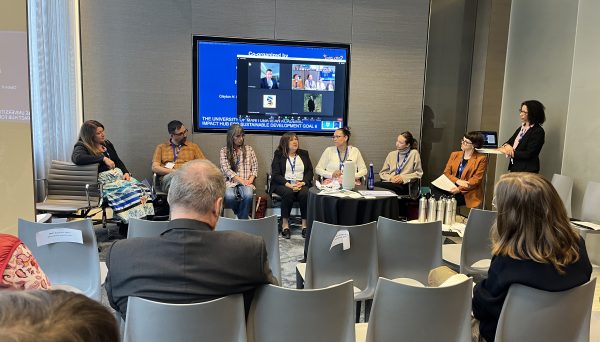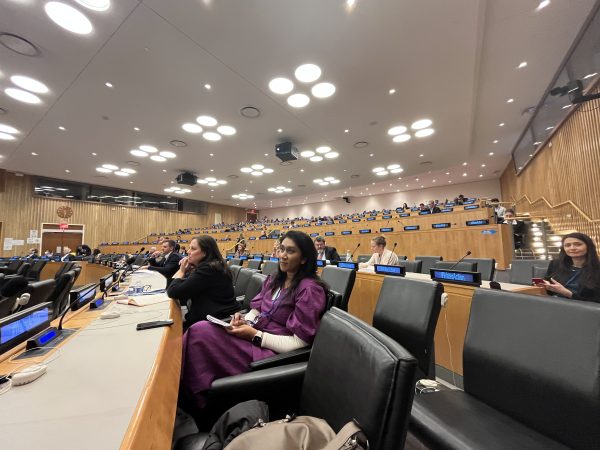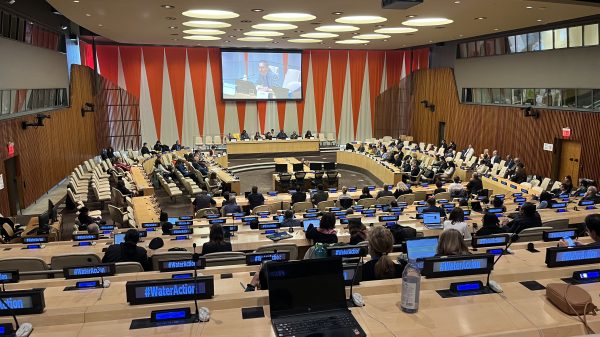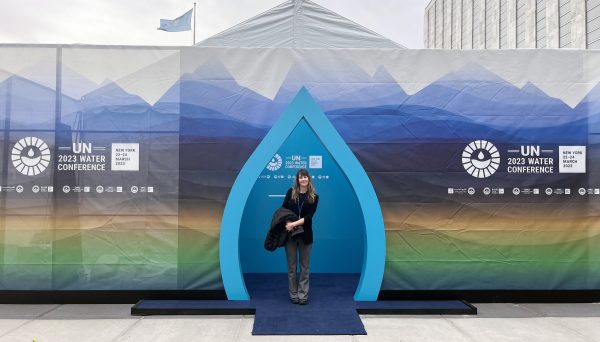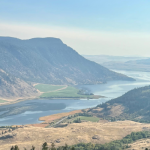Putting water at the centre of all decision making: 2023 UN Water Conference
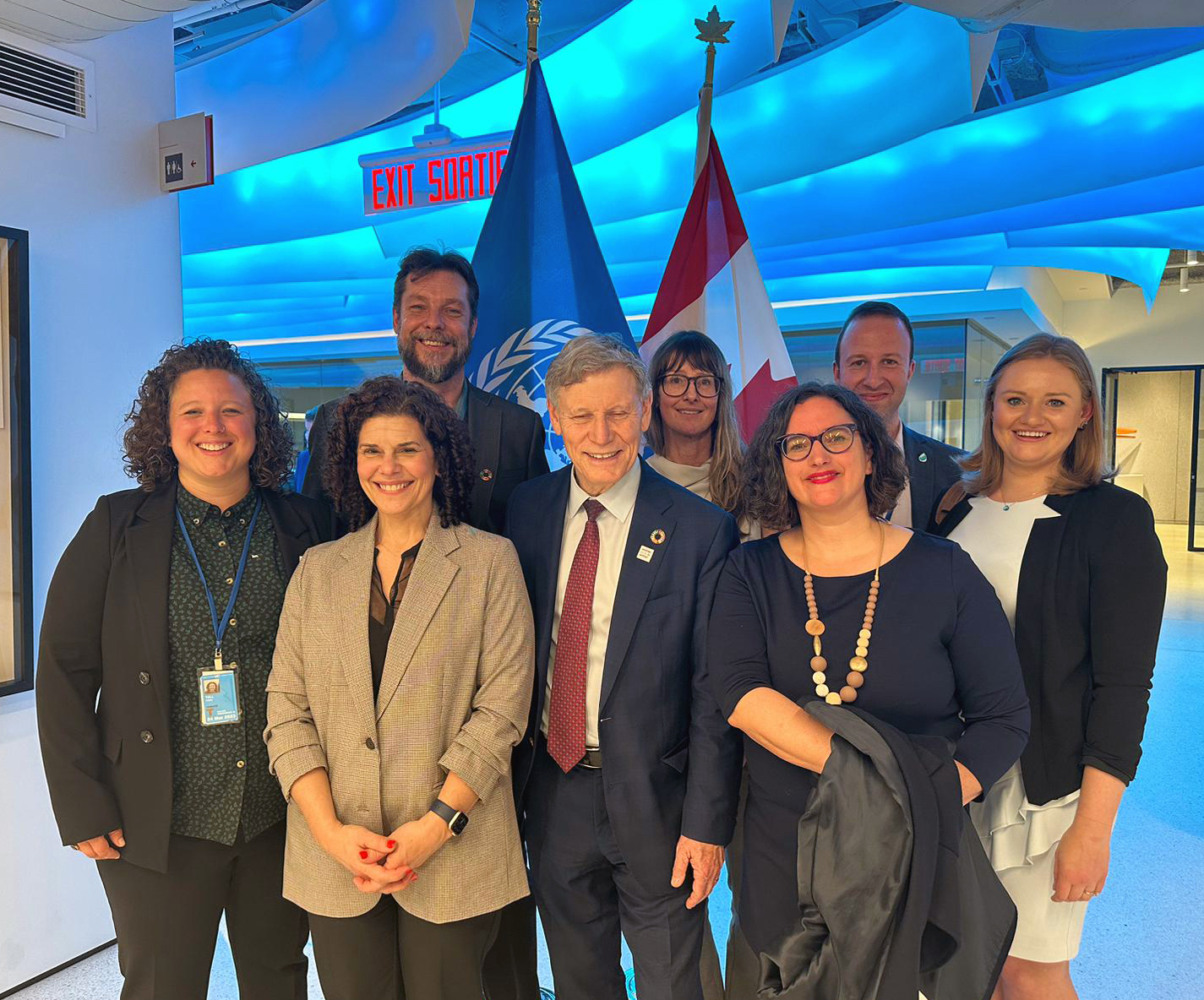
At a reception at Canada House in NYC hosted by Bob Rae, Canadian Ambassador for the United Nations on March 23. Terry Duguid (front centre), Parliamentary Secretary to the Minister of Environment and Climate Change with (back row, l-r) Oliver Brandes (POLIS), Nicole Trigg (Living Lakes Canada), Alan Shapiro (waterNEXT), Laina Timberg (North American Youth Parliament Water); and (front row, l-r) Coree Tull (BC Freshwater Legacy Initiative), Zita Botelho (Watersheds BC), Elizabeth Hendriks (WWF-Canada).
By Nicole Trigg, Living Lakes Canada Communications Director
The 2023 UN Water Conference was a rare opportunity for the international water stewardship community to join forces and collaborate on what a water secure future looks like for all life on Earth — and the steps needed to get there.
From March 22-24 in New York, over 6,000 participants exchanged water-related concerns, research, knowledge and pledges to mark the first United Nations conference on water since 1977. The governments of two countries hosted the conference: Tajikistan, where more than 1,000 of the country’s 14,000 glaciers have completely melted and glacier volume (which makes up more than 60% of the water resources in the Central Asian region) has decreased by almost a third¹; and the Netherlands, a low-lying country with more than a quarter of its land below sea level at risk of flooding due to climate change. Representatives from around the world included Living Lakes Canada’s Nicole Trigg and Georgia Peck, who took in three full days of assemblies, presentations and workshops.
At UN Headquarters alone, there were 200 events to choose from, while 180+ events took place elsewhere across NYC. More than 160 events were offered virtually, including one hosted by Living Lakes Canada in collaboration with four of our international partners (visit the event page for details and the recording).
Living Lakes Canada’s representatives endeavoured to participate in sessions focused on our organization’s priorities including: Indigenous-led initiatives and Reconciliation, water data in support of nature-based solutions, incentivizing private sector funding for climate adaptation and mitigation, and the role of water in food security.
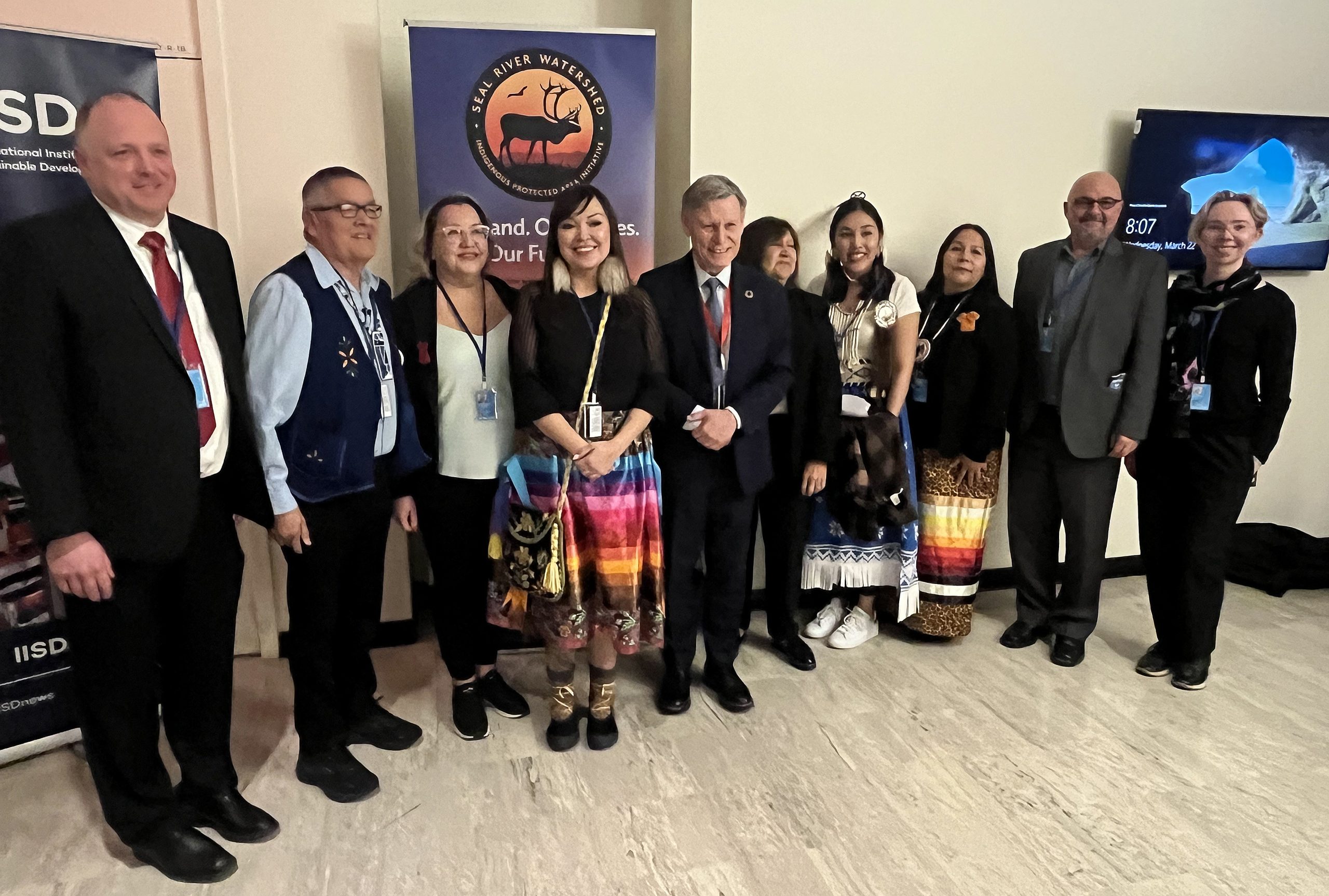
Seal River Watershed Alliance Executive Director Stephanie Thorassie with ECCC Parliamentary Secretary Terry Duguid following the “Indigenous-led Conservation for the Health of Water Ecosystems in Canada and the World” side event.
Two events attended by Living Lakes Canada were of particular note as they highlighted to an international audience the key role Indigenous Peoples in Canada have in advancing water stewardship:
- “Decolonizing water governance through Indigenous knowledge, self-determination, and relationships with water” organized by the University of Manitoba, Carcross/Tagish First Nation, Decolonizing Water, Future Earth, and Himalayan Peace Foundation with a focus on the role of Indigenous Peoples in achieving Sustainable Development Goal 6: “Clean water and sanitation for all”.
- “Indigenous-led Conservation for the Health of Water Ecosystems in Canada and the World” organized by IISD, ECCC, CPAWS, and Ducks Unlimited with a focus on Indigenous-led stewardship, including examples of the Seal River Watershed Indigenous Protected Area and the Magpie River.
Overall, key themes and takeaways from the conference included the following, and mirrored back to us the relevance, innovation and timeliness of the water stewardship work that Living Lakes Canada has been leading for almost 20 years:
- Watershed security is the defining moment of our time
- Half of the world’s population expected to suffer severe water stress by 2030
- Water shortages will affect global supply chains and cost of living similar to what was triggered by COVID pandemic
- Water knowledge should be embedded in all parts of society and be at the heart of all decision making
- The need to shift from reactive to proactive water management; from extraction-based economy to circulatory
- To address the crisis and achieve climate goals, adaptation financing silos must be broken down and investments must be made in water stewards and those driving change
- The stewardship sector plays a key role by bringing together private, government, and community sectors
- Nature-based solutions are the answer: nature is the best technology
- Indigenous People are leading the way: we must think of water as a relationship not a resource
- Comprising less than 5% of the world’s population, Indigenous People protect 80% of global biodiversity
- All segments of society need to step up and deal with this challenge before it’s too late
The current global outlook for water is not good. The water crisis is interacting with the climate and biodiversity crises, exacerbating all three. Some two billion people around the world still lack access to safe drinking water and 40% of the world’s population are affected by water scarcity. About one third of the planet’s wetlands have been lost and freshwater species populations have declined by 83% since 1970. Adding to the pressure, more than 90% of disasters are water-related, with climate change hitting hardest through water. Agriculture demands alone account for some 70% of water usage. Pressure on freshwater is projected to increase by more than 40% by 2050, with 5.7 billion people likely living in water scarce areas.²
The UN Water Conference highlighted the urgent need for all sectors of society to adopt new measures that place water at the centre of all decision-making. As a country that holds 20% of the world’s freshwater, Canada has a responsibility to be a leader in water stewardship and influence the future of water security for the planet. As a water stewardship NGO, Living Lakes Canada’s mandate is to support this evolution by facilitating collaboration in monitoring, restoration, education and policy development initiatives for the long-term protection of freshwater in Canada.
We’re beginning to see progress in Canada with the federal government’s commitment to establishing a centralized Canada Water Agency, and in B.C. with the introduction of the Ministry of Water, Land and Resource Stewardship in 2022 and the pending implementation of the first BC Watershed Security Strategy and Fund. As a society, we need to call for even greater change on a bigger scale. It’s only by prioritizing the importance of water that we will be able to successfully balance the needs of the environment, human communities, industry, and the economy as we move into an increasingly uncertain future.
Footnotes
- https://www.water-climate-coalition.org/leaders/water-and-climate-leaders-speak/
- https://www.un.org/sustainabledevelopment/blog/2023/03/press-release-historic-un-conference-marks-watershed-moment-to-tackle-global-water-crisis-and-ensure-water-secure-future/
